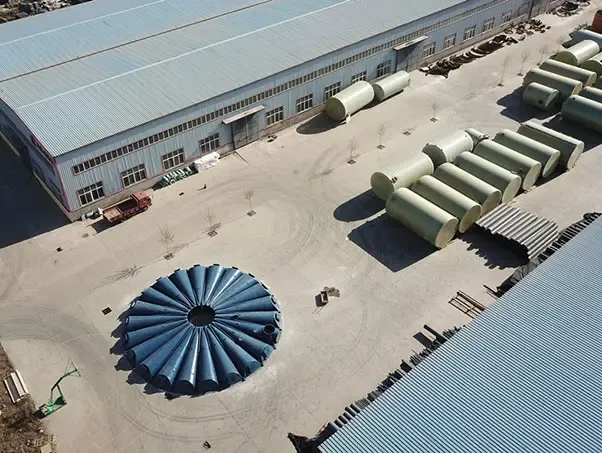
-
 Afrikaans
Afrikaans -
 Albanian
Albanian -
 Amharic
Amharic -
 Arabic
Arabic -
 Armenian
Armenian -
 Azerbaijani
Azerbaijani -
 Basque
Basque -
 Belarusian
Belarusian -
 Bengali
Bengali -
 Bosnian
Bosnian -
 Bulgarian
Bulgarian -
 Catalan
Catalan -
 Cebuano
Cebuano -
 China
China -
 China (Taiwan)
China (Taiwan) -
 Corsican
Corsican -
 Croatian
Croatian -
 Czech
Czech -
 Danish
Danish -
 Dutch
Dutch -
 English
English -
 Esperanto
Esperanto -
 Estonian
Estonian -
 Finnish
Finnish -
 French
French -
 Frisian
Frisian -
 Galician
Galician -
 Georgian
Georgian -
 German
German -
 Greek
Greek -
 Gujarati
Gujarati -
 Haitian Creole
Haitian Creole -
 hausa
hausa -
 hawaiian
hawaiian -
 Hebrew
Hebrew -
 Hindi
Hindi -
 Miao
Miao -
 Hungarian
Hungarian -
 Icelandic
Icelandic -
 igbo
igbo -
 Indonesian
Indonesian -
 irish
irish -
 Italian
Italian -
 Japanese
Japanese -
 Javanese
Javanese -
 Kannada
Kannada -
 kazakh
kazakh -
 Khmer
Khmer -
 Rwandese
Rwandese -
 Korean
Korean -
 Kurdish
Kurdish -
 Kyrgyz
Kyrgyz -
 Lao
Lao -
 Latin
Latin -
 Latvian
Latvian -
 Lithuanian
Lithuanian -
 Luxembourgish
Luxembourgish -
 Macedonian
Macedonian -
 Malgashi
Malgashi -
 Malay
Malay -
 Malayalam
Malayalam -
 Maltese
Maltese -
 Maori
Maori -
 Marathi
Marathi -
 Mongolian
Mongolian -
 Myanmar
Myanmar -
 Nepali
Nepali -
 Norwegian
Norwegian -
 Norwegian
Norwegian -
 Occitan
Occitan -
 Pashto
Pashto -
 Persian
Persian -
 Polish
Polish -
 Portuguese
Portuguese -
 Punjabi
Punjabi -
 Romanian
Romanian -
 Russian
Russian -
 Samoan
Samoan -
 Scottish Gaelic
Scottish Gaelic -
 Serbian
Serbian -
 Sesotho
Sesotho -
 Shona
Shona -
 Sindhi
Sindhi -
 Sinhala
Sinhala -
 Slovak
Slovak -
 Slovenian
Slovenian -
 Somali
Somali -
 Spanish
Spanish -
 Sundanese
Sundanese -
 Swahili
Swahili -
 Swedish
Swedish -
 Tagalog
Tagalog -
 Tajik
Tajik -
 Tamil
Tamil -
 Tatar
Tatar -
 Telugu
Telugu -
 Thai
Thai -
 Turkish
Turkish -
 Turkmen
Turkmen -
 Ukrainian
Ukrainian -
 Urdu
Urdu -
 Uighur
Uighur -
 Uzbek
Uzbek -
 Vietnamese
Vietnamese -
 Welsh
Welsh -
 Bantu
Bantu -
 Yiddish
Yiddish -
 Yoruba
Yoruba -
 Zulu
Zulu
Exploring the Benefits of FRP Drum for Industrial Applications and Storage Solutions
The Future of FRP Drums A Sustainable Approach to Storage and Transportation
In the landscape of modern industrial solutions, Fiber Reinforced Polymer (FRP) drums have emerged as a game-changer for storage and transportation. These innovative containers are engineered from composite materials that provide remarkable benefits over traditional storage options. This article explores the characteristics, advantages, applications, and future potentials of FRP drums, underscoring their relevance in a rapidly evolving marketplace.
Understanding FRP Drums
Fiber Reinforced Polymers are composites made from a polymer matrix reinforced with fibers, usually glass or carbon. The combination of strength from the fibers and the lightweight properties of polymers results in a material that is not only durable but also resistant to chemical corrosion, moisture, and UV radiation. This makes FRP an ideal choice for various industrial applications, particularly in environments that require stringent compliance with safety and quality standards.
Key Advantages
1. Lightweight and Durable One of the most significant advantages of FRP drums is their low weight, which facilitates easier handling and transportation. The durability of FRP also means that these drums can withstand impacts and harsh environmental conditions without compromising their integrity.
2. Corrosion Resistance Unlike traditional metal or plastic drums that can corrode or degrade when exposed to chemicals, FRP drums maintain their performance integrity in the face of harsh substances. This property makes them particularly valuable in the chemical, pharmaceutical, and food processing industries.
3. Temperature Tolerance FRP materials generally offer good thermal insulation properties and can endure a wide range of temperatures, ensuring the contents remain stable when subjected to fluctuating environmental conditions.
4. Sustainability As industries shift towards eco-friendliness, FRP drums stand out for their potential recyclability. While many traditional drums end up in landfills after use, FRP materials can be repurposed, reducing environmental impact.
5. Cost-effectiveness Although the initial investment for FRP drums can be higher than for conventional options, their longevity and reduced maintenance needs often translate into lower lifecycle costs. This cost-benefit ratio makes FRP drums an attractive option for many businesses.
frp drum

Applications of FRP Drums
FRP drums have found applications in various sectors, including
- Chemical Industries Their resistance to corrosion makes FRP drums indispensable for the storage of acids, bases, and other hazardous materials. - Food and Beverage Their non-reactive nature ensures that food products remain uncontaminated, making them suitable for transporting and storing food ingredients. - Pharmaceuticals FRP drums protect sensitive materials from contamination and ensure compliance with stringent regulatory standards. - Construction Due to their strength and resistance to environmental factors, FRP drums are used to store and transport materials safely.
The Future of FRP Drums
As industries increasingly recognize the benefits of sustainable practices, the demand for FRP drums is expected to rise. Innovations in manufacturing processes may lead to lower production costs, making these drums more accessible. Moreover, advancements in material science may result in even more robust variants with enhanced properties.
The growing emphasis on environmental responsibility is likely to spur interest in eco-friendly solutions like FRP drums. Manufacturers focusing on sustainability may prioritize the development of fully recyclable or biocomposite options, blending FRP with biodegradable materials.
Furthermore, as the logistics and supply chain sectors evolve, the need for lightweight and durable containers will become paramount. FRP drums' versatility positions them well for integration into advanced logistics systems where efficiency and sustainability are key priorities.
Conclusion
FRP drums represent a significant advancement in the realm of storage and transportation solutions. Their unique properties offer practical advantages that align with the needs of modern industries striving for efficiency, safety, and sustainability. As the market continues to evolve, FRP drums will undoubtedly play a pivotal role in shaping the future of industrial containers, paving the way for more responsible and innovative practices across multiple sectors. Embracing FRP technology will not only enhance operational capabilities but also contribute to a more sustainable world.









